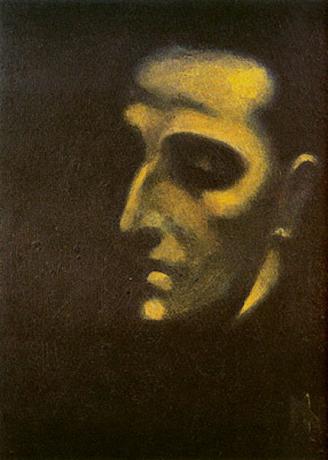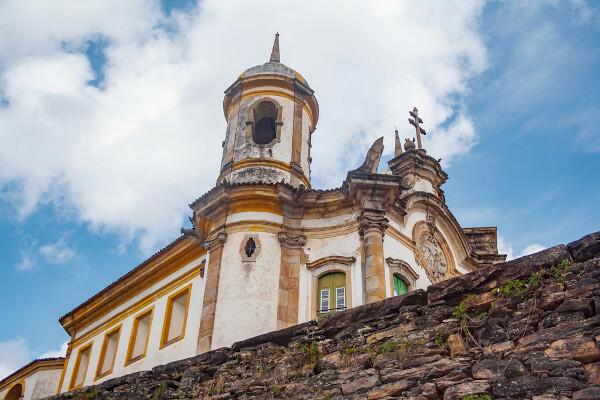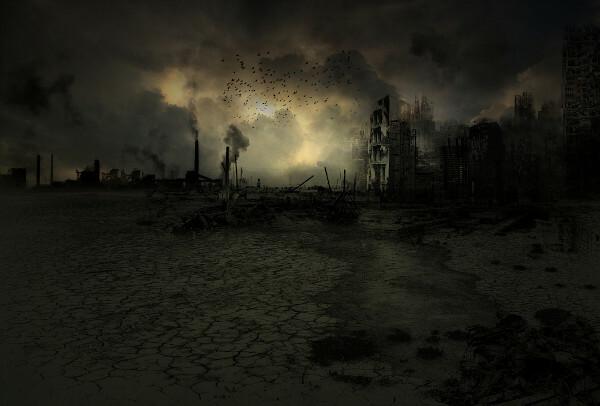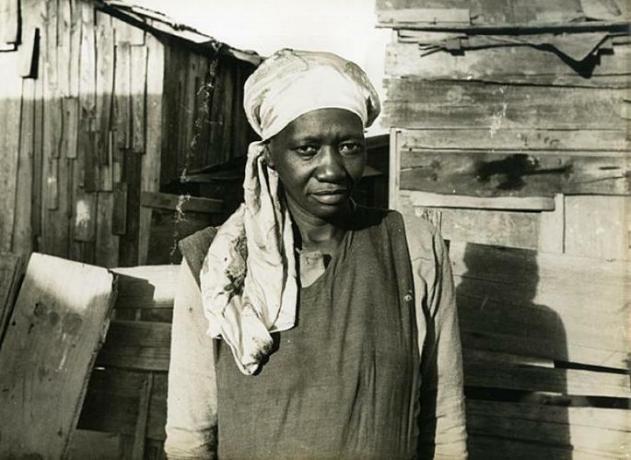Murilo Mendes was born on May 13, 1901. He is a writer for second phase of Brazilian modernism. Your first book, poems, was published in 1930 and won the Graça Aranha Foundation's Poetry Prize. With the death of his best friend, the painter Ismael Nery, in 1934, Murilo Mendes approached Catholicism, whose references became part of his poetry. In Italy, he received the Etna-Taormina International Poetry Prize (1972) and the Viareggio Prize (1973).
His works have surrealist marks, as well as reflections on the contemporary world and existential questions and social linked to the spiritual aspect. One of his best-known books is history of Brazil, from 1932, in which the irreverence of the previous phase of modernism can be seen. After all, as the author said: “Retrograde movements do not interest me”.
Read too: Mario Quintana – poet associated with ssecond fase of modernism
Murilo Mendes Biography

MuriloMendes born on May 13, 1901
, in Juiz de Fora, in the state of Minas Gerais, and lost his mother the following year. When he was seven years old, the poet Belmiro Braga (1872-1937) taught the boy to measure poems and rhyme. At 11, he was a member of a literary guild, and at 14 he had already read authors such as Racine (1639-1699) and Molière (1622-1673). In 1917, started his writing career with some poems in prose.In 1920, moved to Rio de Janeiro, where he worked at the Ministry of Finance, as an archivist. Until, in 1928, he published his first joke-poem, entitled “Republic”, in Journal of Anthropophagy, and, in 1929, the poem “Canto novo”, in the magazine Green, from Cataguases. Already in 1930, published yourfirst book: poems, who won the Graça Aranha Foundation Poetry Award next year. In 1932, he published the auto “Bumba-meu-poeta” in the magazine New.
In 1934, his best friend, Ismael Nery, died, a friendship begun in 1921. The suffering caused by this death was responsible for the Murilo Mendes's approach to Catholicism. In 1936, he was appointed inspector of secondary education for the Federal District. That same year, he became secretary of the National Committee on Children's Literature. In 1939, at the beginning of Second World War, sent a telegram to hitler: “In the name of Wolfgang Amadeus Mozart, protest against the occupation of Salzburg”.
Do not stop now... There's more after the advertising ;)
In 1943, due to tuberculosis, Murilo Mendes was committed to a sanatorium for six months. The writer recovered, and, in 1946, he started working as a scribe. In 1948, published 17 chronicles about Ismael Nery in periodicals Tomorrow and The State of S. Paul. As early as 1953, he gave a lecture in France, at the Sorbonne University, on Jorge de Lima. Between 1953 and 1956, he gave lectures in Belgium and the Netherlands. In 1956, he was denied his visa and was considered persona non grata by the dictatorial government of Spain.
In 1957, moved to italy, where he worked, through the Cultural Department of Itamarati, as Brazilian Culture teacher at the University of Rome and at the University of Pisa. It was in Italy that he received the following awards: Etna-Taormina International Poetry Award (1972) and Viareggio Award (1973).
Murilo Mendes, who died on August 13, 1975, also collaborated with the following periodicals: In the afternoon, the order, Ariel's Bulletin, Green Lantern, Dom Casmurro and Academic Magazine. Was portrayed by the following artists: Ismael Nery (1901-1934), José Maria dos Reis Júnior (1903-1985), Alberto da Veiga Guignard (1896-1962), Candido Portinari (1903-1962), Maria Helena Vieira da Silva (1908-1992) and Flávio de Carvalho (1899-1973).
Literary Characteristics of Murilo Mendes

Murilo Mendes is part of second generation modernist (1930-1945), which is characterized as follows:
Writers and female writers began to devote themselves to reflecting on the contemporary world.
Questioning about the meaning of existence, why being in the world.
Need to rescue the belief in the human species, despite the fact that reality inspires pessimism.
Spiritual conflict: how to believe in the existence of God in the face of such an atrocious reality?
Poetry focused on the sociopolitical context.
Search for explanations for contemporary events.
Freedom to use all kinds of formal resources: free verses (without rhyme and without meter), white (with meter and without rhyme) or regular (with meter and rhyme).
Reconstruction phase, as the first phase it was one of destruction (of traditional and academic values).
In addition to these characteristics, the author presents these specificities:
brands of surrealism.
Elements of the Catholic tradition.
Ironic perspective typical of the first modernist generation.
Social conscience associated with the spiritual aspect.
Read too: Manuel Bandeira – author who underwent several changes in his work
Works by Murilo Mendes
Murilo Mendes' main books are:
poems (1930)
history of Brazil (1932)
time and eternity (1935)|1|
the sign of God (1936)
the panicked poetry (1937)
the visionary (1941)
the metamorphoses (1944)
enigma world (1945)
the disciple from Emmaus (1945)
freedom poetry (1947)
window of chaos (1949)
Contemplation of Ouro Preto (1954)
Poetry (1959)
Sicilian (1959)
spanish time (1959)
the age of the saw (1968)
Convergence (1970)
Polyhedron (1972)
your work history of Brazildeserves to be highlighted, as it is one of his most ironic books, characterized by the irreverent spirit of the previous generation. In this book, the author, in a way, rewrites the history of Brazil through poems that talk about facts like the Discovery of Brazil, a Mining Inconfidence and the Proclamation of the Republic, between others.
Thus, in the poem “Letter by Pero Vaz”, the lyrical self, with a language similar to that of the original letter by Pero Vaz de Caminha, communicates to the king about the riches of Brazil and gives indications that the Crown will have a lot of profit with the exploration of the new land:
Letter from Pero Vaz
The land is very gracious,
So fertile I've never seen it.
We're going for a walk,
A reed sticks on the ground,
the next day is born
Gold-headed cane.
There are guavas, watermelons,
Banana like chayote.
As for the animals, there are many,
Very showy plumage.
There are even too many monkeys.
Diamonds,
Emerald is for Muggles.
Strengthen, Lord, the ark,
Crusaders will not be lacking,
your leg you will channel,
With all due respect.
I will be very much missed
If you leave here.
![Tiradentes statue. [1]](/f/ccb3f95c91155cd349c3e8175a5e3674.jpg)
Already in "The Lieutenant in the Chair", the lyrical self is Tiradentes. In fact, the line “The teeth pulled me out” is ironic to the fact that the ensign was a dentist. Before dying in an electric chair, he thinks of posterity, he wants to be a hero for futile reasons, that is, having your name in the newspaper and a statue in a public square:
the ensign in the chair
Before I was Dirceu,
Live at the feet of the mulatto
Unraveling the lundu of love,
Making crochet at night,
From what I am:
The teeth pulled me out,
burn my chalet;
I couldn't free anyone
Of current slavery;
I got another slave,
I went to jail myself;
I took a hero portrait,
I showed master Silverio
The plans for this revolt;
I look like an aviator
Who travels on the pole,
I really wanted to die;
I sat in the electric chair,
I die, even though it's late
The death I always dreamed of,
— Not that ordinary death,
Off, clandestine:
I want to die a hero,
I love posterity;
I started regretting
Not being like Dirceu,
But it's just for cheating;
I ended up convincing myself
that there is nothing better
Than us being a hero;
I love posterity,
I want a name in the newspaper,
Statue in the public square,
See my vocation...
Come on, push the button.
Poems by Murilo Mendes

It is remarkable, in the work of Murilo Mendes, the influence of Catholicism. As can be seen in the poem “The destruction”, taken from the book the panicked poetry. In that poem, the lyrical self affirms that he did evil and did not have the courage to do good. It declares the superiority of love, aimed at both the guilty and the innocent. Still, make a interlocution with Mary Magdalene, considered an adulteress by some and a prostitute by others, according to each biblical interpretation.
However, traditionally, her image is associated with sensuality. Therefore, the lyrical self says that she mastered "the force of the flesh" and that, for the same reason, she is closer to humans than the Virgin Mary, who, as a virgin, is free from original sin, associated with sex, according to some interpretations. Finally, the lyrical self concludes that what unites us is sin, and not grace (purity, holiness), and that we are part of the "community of despair" that will exist until the world ends, that is, until the apocalypse:
The destruction
I'll die abhorring the evil I've done
And without the courage to do good.
I love both the guilty and the innocent.
O Magdalene, you who have mastered the strength of the flesh,
You are closer to us than the Virgin Mary,
Exempt from eternity from the original guilt.
My brothers, we are more united by sin than by grace:
We belong to the large community of despair
That it will exist until the consummation of the world.
In the poem “The son of the century”, from the book the visionary, the lyrical self, in farewell tone, mentions what he will no longer be able to do, such as riding a bicycle or talking at the gate with “girls with curly hair”. According to him, the waltz will no longer exist Blue danube, the “lazy afternoons”, the “smells of the world”, the “sambas” or “pure love”.
By saying that he got rid of the Virgin's medal, the lyrical self seems to indicate that no more faith, because he is tired of everything, he doesn't have “the strength to scream a big cry”. The cause of this is the relentless reality of the 20th century: “I will fall in floor of the twentieth century”. Century that is thus shown: "hungry crowds", "poisonous gases", "barricades", "shootings", "anger", "revenge", "general protest", "destroying flights", "famines", "lost dreams", “miseries”.
The lyrical self is therefore demonstrating a war scenario, which he ends up associating with the end of the world when he mentions the “airplane angels” that flee “at a gallop”, which brings us back to the horsemen of the Apocalypse. According to Christian tradition, knights are plague, war, famine and death. they signal the arrival of the end of the world and, in the poem, they carry the “cup of hope” with them, so they leave hopelessness among us.
Also, the last verse of the poem makes a intertextualitywith the speech of Jesus Christ nailed to the cross: “Father, why have you forsaken me?”. Here, the lyrical self exchanges the father (God) for the time and space. This may be ironic about science (let us remember that Theory of relativityis associated with time and space), or, by replacing God with these dimensions, the lyrical self shows that despair drove himto lack of faith:
the son of the century
I will never ride a bike again
I won't even talk at the gate
With curly-haired girls
Goodbye Waltz “Blue Danube”
goodbye lazy afternoons
Goodbye smells of the samba world
goodbye pure love
I threw the Virgin's medal on the fire
I don't have the strength to scream a big scream
I will fall to the ground of the twentieth century
wait for me outside
The righteous hungry crowds
Subjects with poisonous gases
it's time for the barricades
It's time for the shooting, for the greatest anger
the living ask for revenge
The dead vegetable minerals call for revenge
It's time for the general protest
It's time for destructive flights
It's time for barricades, shootings
hungers cravings cravings lost dreams,
Miseries from all countries unite
The plane-angels flee at a gallop
carrying the cup of hope
Time firm spaces because you abandoned me.
See too: Poems of the first modernist generation
Sentences
Next, we are going to read some of the author's sentences taken from an interview conducted by Leo Gilson Ribeiro (1929-2007) and published in the magazine Look, in 1972:
"I am a man who watches the tide."
"Retrograde movements don't interest me."
"I'm complex, I'm very rationalist and irrationalist."
"The text for a poet is something definitive."
"I am absolutely not interested in popular consecration."
"I never took part in groups: I reject some and admire others."
"If one day the classless society takes place, I think it will be another reason for the advancement of Christianity."
"Christianity is in its infancy."
Note
|1| Co-authored with Jorge de Lima (1893-1953).
Image credit
[1] Wagner Campelo / Shutterstock
by Warley Souza
Literature teacher

